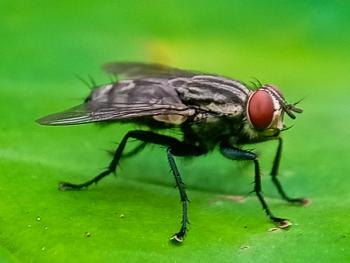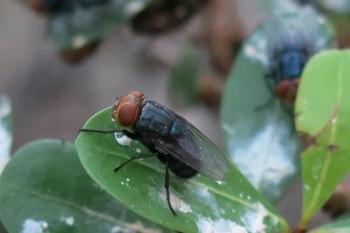
Lone star tick continues to expand territory to the north, east
Carrier of infectious agents known to be aggressive biter, threat to pets and people.
The lone star tick, once thought to primarily occupy the southern portion of the country, is gradually expanding its territory to the northern and eastern states. Populations of this aggressive tick, known to carry pathogens causing ehrlichiosis, Rocky Mountain spotted fever and cytauxzoonosis, are now being identified as far north as New York and Maine.
“Lone star ticks become more and more widespread every year as they continue to infiltrate states where they have never before been present,” says Michael Dryden, DVM, PhD, distinguished professor of veterinary parasitology at Kansas State University College of Veterinary Medicine, in a release issued by IDEXX Laboratories and its associated site
Most commonly found in southeastern and south-central states such as Texas, Oklahoma, Missouri, Arkansas, Georgia, Florida and the Carolinas, the lone star tick now can be found throughout the northeast and north-central region in places like Iowa, Illinois, Indiana, Wisconsin, Michigan and Pennsylvania.
“The lone star tick is a very aggressive tick, and it actively seeks out people and pets to feed on,” says Michael J. Yabsley, MS, PhD, associate professor at the Warnell School of Forestry and Natural Resources and the Southeastern Cooperative Wildlife Disease Study, College of Veterinary Medicine at The University of Georgia. “It’s one of the most common ticks that people find on themselves and their dogs, so everyone should take precautions—especially in the new areas of invasion.”
Dryden and Yabsley attribute the tick’s expansion, which began approximately 25 years ago, to a number of factors, including milder winters, suburbanization and the abundance of white-tailed deer and wild turkeys, common hosts for the tick.
Besides ehrlichiosis and Rocky Mountain spotted fever, which most commonly affect dogs, the lone star tick has also been found to transmit the pathogen that causes cytauxzoonosis, or bobcat fever, which affects cats and is highly fatal. Susan Nelson, DVM, a clinical associate professor at Kansas State’s Veterinary Health Center, says in a university release that cytauxzoonosis was once thought to be transmitted only by the American dog tick but now has been found to be transmitted by the lone star tick as well.
Although ticks, including the lone star tick, are most active during the spring, parasitologists continue to urge year-round preventives for pets, since these parasites can survive through the winter months and come out of dormancy on milder days.
For the latest recommendations on preventives and more information about ticks and tick-borne diseases, visit
Newsletter
From exam room tips to practice management insights, get trusted veterinary news delivered straight to your inbox—subscribe to dvm360.





